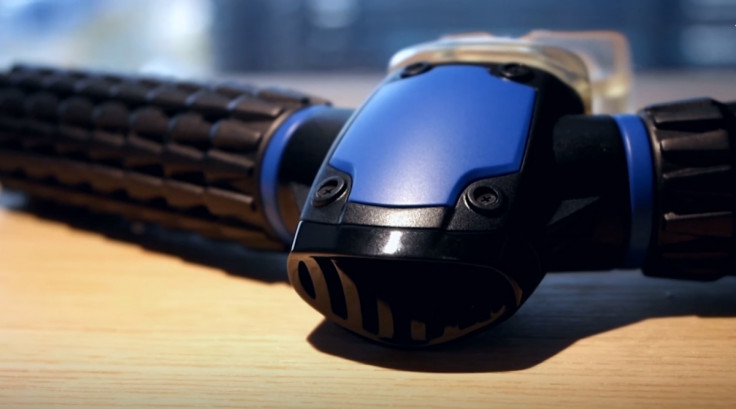Triton underwater breathing gills: Scientifically flawed Indiegogo funding campaign raises $800k

An Indiegogo campaign for a device that promises to grant wearers the ability to breathe underwater has pulled in over $830,000 (£580,000/ €740,000) in funding despite a number of flaws in the science backing up the technology.
Triton is a scuba mask sporting a set of so-called artificial gills that pull in oxygen for the surrounding air for breathing. These gills extract oxygen molecules, via a microporous filter, which are then compressed and stored as breathable oxygen inside the device. According to its creators, Triton stores enough air to allow divers to stay underwater for 45 minutes, at a maximum depth of 15 feet.
It all sounds very 007, with the device bearing a strong, if not quite as suave, resemblance to the 'breathers' of Bond classics Thunderball and Die Another Day. Little wonder, then, that Triton managed to rack up some $100,000 in funding within 24 hours of the project going live.
However, the device has just as quickly drawn scepticism from the online community, with a number of experts weighing in to raise doubts over the science that backs Triton. Much of this has centred on the alleged oxygen-compressing capabilities of the device which, according to experts, are dubious for a device measuring just 11.5 inches across.
Triton's creators claim the mask employs a "very powerful modified micro compressor" that compresses oxygen and stores it in a built-in tank. This is powered by a powerful lithium-ion battery that has also been modified according to the team. Speaking to Tech Insider, deep-sea ecologist Andrew Thaler suggested that such a battery system would have to be "orders of magnitude more efficient than anything on the market" to be able to produce oxygen quickly enough.
Fishy business
Back when Triton was first conceived in 2014, marine biologist and diver Alistair Dove highlighted a number of holes in the device's claims. Writing for Deep Sea News, Dove said that Triton would need to be extremely good at filtering out oxygen to keep the wearer alive. By Dove's estimates, the mask would need to work its way through 90 litres-of-water-a-minute to supply enough oxygen for normal breathing rates – approximately 15-times-per-minute – while operating at 100% efficiency. He added that such a feat was implausible given the fact Triton doesn't use a pump to force water through the mask, instead relying on the swimmer to move water through it naturally.
Even if you could swim at superhuman speeds, breathing in Triton's pressurised oxygen would come with its own health hazards. Current rebreathers used in scuba diving control the amount of oxygen supplied to the diver by metering it out alongside other gases, like nitrogen and helium. This is because breathing in pure oxygen is toxic to the body and comes with a smorgasbord of damaging health implications, the eventual of which being death.
Neal Pollock, research associate at the Center for Hyperbaric Medicine and Environmental Physiology at Duke University Medical Center and research director for the not-for-profit Divers Alert Network, told Tech Insider: "You have to deliver enough for physiological needs, but not so much that you would create a toxic environment." Pollock went on to label Triton "science fiction".
Despite the dodgy science, the Indiegogo campaign has smashed its $15,000 funding goal. So far, 1167 backers have paid $299 (£210, €270) to receive a Triton in their colour of choice, while a further 300 have pledged the same amount for a limited edition 'Black Ops' unit. There is also a now sold-out 'Double the fun' package that allows buyers to secure two masks for $499, with 500 people having claimed the perk, meanwhile 99 backers have pledged $1100 to receive five Trident masks.
The Triton team has posted a video on its Indiegogo page allegedly demonstrating their mask in action, which you can view below. It's worth noting that the shots of it in use underwater don't last longer than a minute or so – make of that what you will.
IBTimes UK has contacted Triton for further comment on the tech behind its device. In the meantime, we'd advise against diving for your wallet on this one.
© Copyright IBTimes 2025. All rights reserved.






















